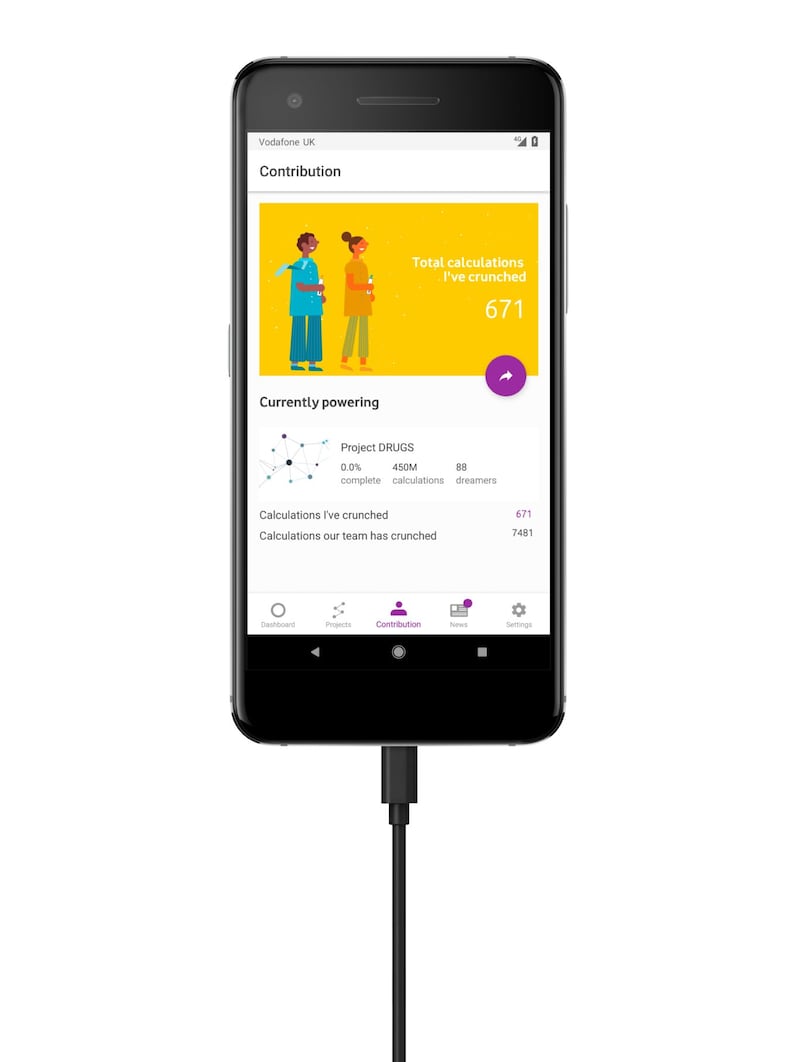Cancer researchers in the UK are to benefit from an app which crunches data while smartphone owners sleep.
The DreamLab app, developed by the Vodafone Foundation, uses the collective power of a network of phones to analyse huge amounts of information in a much shorter space of time.
The technology will be used by researchers from Imperial College London hoping to identify how existing and new drugs can be used to treat cancer.
The project, Drug Repositioning Using Grids of Smartphones (DRUGS), marks the official launch of the app in the UK and its first collaboration with a UK university. It previously launched in Australia.
Star Wars actor John Boyega is among those encouraging the public to get involved by downloading the app and “donating” the processing power of their idle smartphones while they sleep.

Dr Kirill Veselkov, who is leading the team at Imperial College London’s department of surgery and cancer, said: “We are currently generating huge volumes of health data around the world every day, but just a fraction of this is being put to use.
“By harnessing the processing power of thousands of smartphones, we can tap into this invaluable resource and look for clues in the datasets.
“Ultimately, this could help us to make better use of existing drugs and find more effective combinations of drugs tailored to patients, thereby improving treatments.”
Scientists from the university have designed an algorithm that breaks down large datasets into small chunks.
Through DreamLab, these smaller chunks will be analysed by a network of smartphones to try to find links in the data.
This could help identify more effective combinations of existing drugs to treat cancer and work out the best treatment for individuals.

While this data processing could be performed by a computer, it would take much longer.
A desktop computer with an eight-core processor running 24 hours a day would take 300 years to process the data, the developers said.
However, a network of 100,000 smartphones running six hours a night could do the same amount of work in three months.
A new device – if fully charged and plugged in – could run up to 60 calculations and solve up to 24,000 problems in six hours.
Andrew Dunnett, director of the Vodafone Foundation, said: “DreamLab is a great example of the transformative power of connectivity and technology.
“This innovative app gives everyone the chance to play a part in the fight against cancer while they sleep.
“We hope DreamLab will significantly increase the speed at which Imperial College and other researchers are able to make breakthroughs in cancer research, ultimately saving lives.”
The app, available on the App store for iOS or Play Store for Android from May 1, is free to access for Vodafone customers and will not use any of their data allowance.
Those on other networks can choose how much of their monthly data allowance to “donate” or connect to Wi-Fi.








